John Ruddick (MLC, NSW) Inaugural Speech
Newly elected MLC in NSW, Australia, calls out COVID Hysteria, Police State, Vaccine Extremism, Mandates, Excess Deaths, Ivermectin, Big Pharma, TGA, debt, Net-Zero Carbon Economy, Julian Assange, mass delusions and the indulgences scam, climate propaganda (the rebadging of global warming to ‘climate change’), carbon credit schemes, environmentalism being hi-jacked by a money-making scheme, socialism, and possible solutions to government corruption (such as anarcho-capitalism and Switzerland comparisons). (Full Transcript with my References and Commentary… )
John Ruddick MLC – Inaugural Speech – NSW Parliament
29 Jun 2023 Rumble-Mirror | Rumble-Mirror | YouTube | Twitter | PDF | Telegram-Mirror | Telegram-Mirror
Links:
- Twitter: John Ruddick @JohnRuddick2
- Articles on Spectator Australia
- 2023 Interview—April 20, 2023 ‘John Ruddick’s first interview after being elected to NSW Parliament’ Rumble (about Russia/Ukraine with Aussie Cossack)
- 2023 Podcast—May 5, 2023 ‘The Hon. John Ruddick, MLC & Dr Melissa McCann’ (with Chris Smith) Audible.com
- 2022 Interview—‘Election Week: John Ruddick – Senate Candidate – Liberal Democrats – NSW’ (with Maria Zeee) ZeeeMedia | Rumble
- Parliament Pages parliament.nsw.gov.au | Hansard Questions/Speeches
- Patents: AU2013902515 / US20160173951A1 | AU2014289959
Questions to Parliament (Hansard):
- 30 May 2023: Questions Without Notice: Energy Prices: “My question is directed to the Minister for Climate Change, Minister for Energy, Minister for the Environment, and Minister for Heritage. Given that Australia has a significant competitive advantage in producing cheap and reliable energy, does she agree that we should reasonably expect to have some of the cheapest electricity prices in the world?”
- 23 May 2023: Questions Without Notice: Nuclear Energy: “My question is directed to the Minister for Climate Change, Minister for Energy, and Minister for the Environment. Given the Government’s stated desire to transfer away from fossil fuels and given the fundamental need for reliable base load energy, is the Government open to having a detailed discussion about the role of a privately funded nuclear energy industry in New South Wales?”
- 29 June 2023 Adjournment Debate: (on Donald Trump Jr’s upcoming visit). “If you want world peace, there is no better bet than Trump‑Kennedy 2024.”
Ummmm…?
- (Dear John…. my Trump-facts response is getting so big, I am in the process of creating a new post to enlighten you—he does not get a “free pa$$” for his part in this & does not deserve “praise” or “worship”—he just has “good script writers”, but he signed off on everything like a good little puppet; that allowed this fake-pandemic to initiate the destruction of the western world)
Inaugural Speech Full Transcript and my Refs & Commentary…
The PRESIDENT: I welcome to my gallery this evening the family and friends of the Hon. John Ruddick, including the Hon. Ross Cameron, former Federal Member for Parramatta; the Hon. David Clarke, former member of the Legislative Council; Mr Tim James, member for Willoughby; Ms Tanya Davies, member for Badgerys Creek; Mr Craig Kelly, former Federal member for Hughes; Dr John Humphreys, founder of the Liberal Democratic Party; Mr Paul Barker, national president of the Liberal Democratic Party; Mr Robert Cribb, former president of the NSW Liberal Democratic Party; Mr Nathan Thomason, former president of the NSW Liberal Democratic Party; Mr Lyle Shelton, national director of the Family First Party; and Mr Michael O’Neill, leader of the Informed Medical Options Party. Most importantly, I welcome Mr Ruddick’s family: Kelly, Daisy and Ruby Ruddick, and Caixin Xhao. You are all most welcome. It now being 6pm, according to Resolution of the House, proceedings are now interrupted to enable the Honourable John Ruddick to make his first speech without any question before the Chair. The Member has the call.
- I like some of the things you said in your speech, but I’m triggered to comment on other things you said…
The Hon. JOHN RUDDICK (18:00): Mr President, there was another occasion I was to speak and the strict convention then (as now) was I be heard without interjection. That was my inaugural speech at the Young Liberal Council, a few blocks from here, in 1994. This was just before your time at that forum Mr President, but despite being a newbie, I launched into the most bitterly contentious factional brawl of the day. That ‘no interjection thing’ was wantonly discarded.
Thus began 27 years of a highly dysfunctional relationship between the NSW Liberal Party and John Ruddick. This involved:
- Multiple candidacies for the Young Liberal presidency.
- Multiple candidacies for state and federal party president.
- Endless violations of that party’s prohibition against speaking to the media
- Dozens of unsolicited emails to the entire membership about one righteous cause after another.
- Multiple expulsion attempts (all deftly dodged).
- Two constitutional reform battles that went on for years, climaxing in apparent triumph only to see the factions soon devise ways to skirt the new rules.
To top it all off, in 2018 I wrote a book explaining how everything the Liberal Party organisation did was completely wrong. (01)
But I do sincerely thank my colleagues here from my former party for their warm welcome to this place. There is no surer way to mend years of factional strife than quitting for good and joining a better party. I feel like Switzerland—peace with all!
I first heard of the Liberal Democrats in 2012 when Clinton Mead (here tonight) was elected mayor. I devoured the website, and said ‘Hallelujah!’ I was tempted to defect a few times but didn’t quite bite the bullet—still betting, the best bet for small government was reform of the Liberal Party. (02)
In mid-2021 that changed. State and federal Liberal governments did four things that made me throw in the towel:
1.) Covid Police State
The authoritarian Covid police state—all over a bad flu. Bad flus are bad. Bad flus happen from time to time—but we treated Covid as though it was Ebola. The Covid fatality rate in NSW was 0.13 per cent—at the upper end of what we expect each winter, maybe a little bit more—but to call Covid a pandemic is an insult to pandemics. The average age of a Covid fatality in Australia is higher than average life expectancy. The NSW government locked citizens in quarantine just for being near a Covid positive person. (03) (04) (05) (06) (07) (08) (09) (10) (11) (12)
Many want to move on from Covid—I don’t. Elements in the media tell us, ‘There is another pandemic around the corner – it’ll be worse than Covid!’ I’m sceptical but if true: surely we need a Royal Commission into the last time a pandemic was declared—so we can learn. (13)
- Yeah, they even have a new Tabletop for something in the works… lots of money to be made by getting governments prepared for and being duped into funding future-health-scares.
Sweden alone resisted the hysteria—masks, lockdowns, and vaccines were recommended but not compelled—Sweden trusted its citizens, and Sweden has had Europe’s lowest increase in excess deaths over the past three years. I have respected Peter Costello and Tony Abbott most of my life – both have now spoken out forcefully about the “Covid madness“, but the Liberal Party’s best, only found the courage to do so after the crisis had passed. (14) (15) (16)
- Tony Abbott; on the cover of a Freemason magazine; who swore an oath to the “Queen of Australia” when he became PM? That Tony Abbott? (Off-topic, but had to be said… )
The police—and even the army and helicopters—forbade us to leave our homes to get sunshine, fresh air, and exercise—but that radical right-wing newspaper, the New York Times told us in July 2021 that “not one person in the world has caught Covid in outdoor environment”. (17) (18) (19)
2.) Vaccine Extremism
The second disappointment was—vaccine extremism. On June 26, 2021 the Liberal Premier of NSW announced a ‘two-week lockdown—Two weeks morphed into many months and a diabolical catch was added–”we won’t let you out until you take multiple injections of not only a rushed vaccine, but of an entirely new class of vaccine.” (20) (21) (22) (23) (24) (25) (26) (27)
Most relented—but everyone got Covid anyway. (28) (29) (30)
Last year, the NSW Health published weekly data showing, the fewer vaccines you had, the less likely you went to hospital or ICU—the fatality rate was similar for the vaxxed and the unvaxxed. (31) (32)(33) (34)
Since the vaccine rollout there has been a 15-20 per cent increase in excess deaths in nations like Australia that had mass mRNA injections.
- 31 May 2023: Excess deaths in recent years – John Ruddick MLC calls on the govt to investigate (Twitter|YouTube|Telegram)
Is it the vaccine or is it the bitter hangover from locking people up for so long? We don’t know—but either way, it’s almost certainly the result of poor governance—yet another reason for a Royal Commission. (35) (36) (37) (38) (39) (40) (41) (42) (43) (44) (45) (46) (47) (48)
The Commonwealth government is still recommending a fifth “vaccine” but barely anyone’s listening. Too many know of others with bad reactions. I suspect few, even in this chamber, have lined up for their fifth injection—and so are now doing what we were scolded for doing: ‘thinking for one’s self’. (49) (50) (51)
Ivermectin is a medicine made from compounds found in the soil of Japan. Prior to Covid, Ivermectin had been prescribed to humans—not four million times—but four billion times. It is such a wonder drug the inventors won the 2015 Nobel Prize for Medicine. Soon after Covid arrived, various researchers around the world began noticing Ivermectin just may be unusually helpful in treating Covid patients. (52) (53)
But big pharma was alarmed—if Ivermectin worked, it was too cheap to make squillions off—not only was it banned for sale, but many decided ivermectin was only a horse dewormer. (54) (55) (56)
The Therapeutic Goods Administration [TGA] is a Commonwealth agency that has the authority to say whether a new drug is permitted to be sold in this country or not. I assumed the TGA’s funding came from taxpayers, but I recently learnt that 97 per cent comes from pharmaceutical companies. This is a textbook example of a conflict of interest. The TGA’s website today admits it has received over 137,000 COVID vaccine injury reports. Many drugs are pulled from the market after 137 injuries. For any drug the number of reported vaccine injuries is a fraction of the actual injuries. (57) (58) (59) (60) (61) (62)
- In the gallery today is Stephen McDonald–Director of the NSW Firefighters Alliance who represent fireys who are still not able to work because of Covid vaccine mandates.
- Stephen Kelly and Roland Crystal are also here—both long-standing police officers sacked for not submitting to the big-pharma state. I understand new police recruits are not asked about their vax status but those stood down are not yet reinstated. (63)
- John Larter is here too–a paramedic of 25 years sacked for not taking the vaccine and he represents many others.
- Tony Nikolic’s also here–he has heroically defended these people and many others in the legal system. It’s been a thankless task but one day when the Covid fog has lifted I’ll nominate Mr Nikolic for an Order of Australia.
I urge the Minns-Sharpe government to follow the lead of jurisdictions around the world and remove these pointless cruel vaccines.
3.) Government Debt
My third disappointment with the Liberal Party was government debt. Historically, Liberal governments have generally had a good economic record, but the recent Liberal state and federal governments racked up eye-popping public debt which will weigh down NSW (and the nation) for years. When Labor handed over power in this state to the Coalition in 2011 they left a modest debt of $7 billion. The new government inherited a projected debt of $187 billion. It’s a similar story in Canberra. It’s all appalling.
4.) Net-Zero Carbon Economy
And my fourth disappointment was that, despite most Liberal parliamentarians privately acknowledging a ‘Net Zero carbon economy’ is a reckless folly—they capitulated anyway because the polls said to. Real leaders don’t follow polls: they change them.
I must put on the record that with all these disappointments of my former party, the Labor opposition in most cases, criticised the Coalition for not being more disappointing.
Yes, I’m encouraged by the rhetoric of the new government around budget repair, but sorry, I’m sceptical. There have been few Labor figures since 1901 who cut spending, deregulated industry, and had a pro-free enterprise approach, but when they have done so (such as Bob Hawke, Paul Keating, Peter Walsh, Michael Costas, and ALP-ish Joe Lyons) their governments enjoyed electoral success. So there’s a free tip for the government.
When I showed up at Liberal Democrat meetings I found what I had always hoped to find in a political party. Libertarians are widely-read, extremely diverse, big-picture thinking, and passionate about a better future—plus there’s an oversupply of supreme intellectual know-alls who think nothing of having a two-hour argument about whether Ayn Rand is better than Milton Friedman. Spoiler alert – she is.
The Liberal Democrats are a libertarian party. We libertarians are plotting to take over the world—so we can leave you all alone.
Libertarianism can be summed up in two words:
“Power Corrupts”
We believe in the inherent morality of capitalism—simply because that is what people will spontaneously do when left alone.
The worst atrocities of history were not the result of drought, flood, pestilence or plague—but of big government throwing its weight around like an elephant stomping on ants.
Scepticism of government doesn’t make you a conspiracy theorist – it makes you a history buff.
The relationship between the state and citizen is a ying and yang. The bigger the state is—the more stunted citizen potential. The smaller the state—the more dynamic the citizens.
Today’s gold medallist in the libertarian Olympics is—Switzerland. It is not a libertarian utopia but for generations the Swiss have enjoyed the least intrusion from government—and thrived on all fronts.
- The Swiss economy is the second most deregulated in the world and has one of the highest per capita incomes in the world.
- Switzerland has the 4th lowest tax rates in the OECD.
- Free speech is constitutionally guaranteed.
- Unlike Australia, the Swiss are a true federation. Switzerland has a population similar to New South Wales, but power is devolved down to 26 states or what they call cantons. Most political power is held by the cantons who experiment and learn from each other.
- Our state governments are largely welfare dependents off a central government far bigger than what the now forgotten but noble federation-sceptics (who dominated this chamber in the 1890s) feared federation would lead to.
- Contentious laws in Switzerland are decided by citizens-initiated referendums.
- We prefer citizens-initiated vetos —but I’ll leave that for an adjournment debate.
- The Swiss government has nothing to do with healthcare—except for giving low-income earners a voucher which they use to purchase insurance from a dynamic private marketplace. Over 99 per cent of Swiss have health insurance and surprise, surprise, enjoy the world’s best health stats.
- The Swiss are cautious with social reforms but cannabis is becoming legal. Libertarians make no moral judgment on the rights or wrongs of cannabis – indeed we want public debate – but we do not want a busy-body government threatening punishment over cannabis use.
- So, to the Hon Jeremy Buckingham can I say, when you need a vote on this issue—you’ve got one vote locked in.
- Swiss households have one of the world’s highest firearm ownership rates, but Switzerland also has the world’s lowest murder rate. Those firearms deter criminal behaviour, government overreach, and invasion.
- So to my colleagues in the Shooters Party when you need a vote on this issue—you’ve got another vote locked in too.
- But what libertarians like most about Switzerland is its 500-year-old tradition of staying the hell out of war.
- Barring a brief Napoleonic incursion, Switzerland has not been invaded. When armies of death marched across Europe during the first world war, second world war, and the Cold War, they didn’t think to invade Switzerland. Ukraine’s Vladimir Zelensky recently addressed the Swiss Parliament and demanded the Swiss renege on their ancient tradition and fund his side of war. Half the Swiss Parliament walked out and rightly urged all sides of that conflict to agree to peace talks immediately.
- Perhaps Switzerland is so successful because it hasn’t sent its finest young men out to get slaughtered every second generation.
- The Swiss are however stellar global citizens. In the 19th century a Christian businessman from Geneva, Jean-Henri Dunant, was on his way to meeting in Italy when he came across a horrific sight – 40,000 dead and wounded lay where a battle had just been fought. No one was providing any care. Dunant cancelled his travel and spent days doing all he could to alleviate suffering. Deeply disturbed he returned home, called a meeting of other Christian businessmen, and gave the world the Red Cross—which today has 16 million volunteers.
- The Red Cross was not an initiative of the Swiss government but of private individuals—and is the most successful charity in human history. Government programs come and go—but the Red Cross demonstrates the best of Christianity and the best of privately organised welfare.
- (Dear John: My Hypothesis: Maybe because a lot of the major globalist organizations — those that try to rule the world — are situated there? i.e. “rules for thee, but not for me” — another post inspired by your speech) :) Swiss Globalist Organizations; Plotting Our Fate?
- Such as: (Club of Rome), (WEF & their DAVOS get-together’s). (WHO), (UN), (WTO), (WMO), (Bilderberg 2019), (BIS), (CERN), (World Bank), (EBU), (GAVI), (WWF), (UNHCR), (ECOSOC), (UNIDIR), (OHCHR), (Red Cross), (WIPO), (WCC), (IBE-UNESCO), (ILO), (ISO), (ITU), (IGF), (WBCSD), and at least 40 more, including: (ACI) (CARE) (EGPAF) (Euro-Med Monitor) (FIND) (ICV) (International AIDS Society) (IB) (ICAN) (ICJ) (ILGA World) (IRU) (UICC) (GICHD) (DCAF) (GFATM) (GCSP) (ICRC) (IEC) (IFRC) (OSCE) (IOM) (IUCN) (UPOV) (UNITAID) (UNCTAD) (UNECE) (UNITAR) (LWF) (IPU) (MI) (MSF) (PEFC) (QUNO) (UN Watch) (WFUNA) (WHF) (WJC) (WOSM) (WSCF) (YMCA) (YWAM)
- (Also, I’m pretty sure the good early-works of the Red Cross has now been overtaken by corruption over the years; just like the others)
This is a state parliament Mr President, but please indulge me to make a point about a foreign policy matter that has the potential to cause catastrophe to NSW.
Libertarians are concerned at the endless arms-build up in the Asia-Pacific. Our leaders tell us China is muscling up and expansionist. Chinese leaders tell their citizens the West is muscling up and expansionist. Both are correct.
I fear a July 1914 succession of events that sees the Asia-Pacific stumble into a pointless war. With today’s weapons and Asia’s population—the death toll from such a war could exceed that of the second world war. Assuming Australia wasn’t reduced to rubble in the process, we’d be overwhelmed with millions of refugees.
I am sympathetic to former Prime Minister Paul Keatings’s concerns about our monstrous spending on weapons that are—not designed to defend—but to attack.
- (Off-topic (maybe)… In 1992, Paul Keating signed UN Agenda 21 on behalf of Australia, without Referendum, and in 1985, let foreign banks into the country…) (64) (65) (66) (67) (68)
The most dangerous person on earth we are told is Julian Assange—but if journalist Assange was free to publish his criticisms of the world’s war machines we would all be safer. #FreeAssange.
The two American presidents in my lifetime—who the experts said would be the most dangerous on the world stage—were Ronald Reagan and Donald Trump. Both defied the foreign policy establishment and reached out to historic adversaries, became friends with once hostile leaders, and calmed geopolitical tension.
- (Err, I like Reagan but, he was the one that signed the act to indemnify vaccine manufacturers back in 1986, the domino-effect being the suffering and maiming of millions since and letting criminals get away with murder.) (69) (70)
Libertarians are not pacifists. When a delusional regime says they want world domination (like the Nazis, Imperial Japan, and the Soviet Union) then they leave us no choice—but we agree with Winston Churchill: ‘Jaw jaw is almost always better than war war.’
Australia is a proudly Western nation with Asia-Pacific geography. We are therefore best placed to lead the campaign to de-escalate superpower tension in the Asia-Pacific.
Another reason libertarians don’t like big government, is because mankind is, from time to time, subject to irrational, harmful mass delusions – especially when melded with big government. Covid is merely the last case study.
One of the benefits of separating church and state was that if a religious grouping did get delusional —at least the delusion was contained and not magnified by state power.
Let me tell the story of William Buckley, an escaped convict who was warmly adopted by an Aboriginal tribe in the Geelong area. Buckley spent 32 years living in the Australian bush and then walked into the Port Philip Bay colony in the 1830s. Buckley expected to be punished by the English group for being an escapee, but the English were fascinated by his account and employed him to foster good relations with the Aboriginals.
Buckley then wrote a gripping book that contains an episode where his tribe and the surrounding tribes were in a mortal panic. These tribes held the supernatural belief that the world was held up by a powerful man who used ropes to keep things in place at the end of the world. There was panic because the word had gotten around that the strong man was getting weary—and if every tribe didn’t immediately send him all their food, tools, and weapons—the world would definitely implode.
Buckley’s tribe and others furiously obeyed and handed over everything they had—and then raced atop a mountain hoping it might provide some protection if the implosion came.
Buckley wrote of this episode, ‘But who the old juggling receiving thief was I could never make out. However, it is only one of the same sort of robberies which was practiced in the other countries of what is called Christendom.’ (71)
Buckley was correct – mass delusions are a universal phenomenon. The pyramids of Egypt are impressive—but the pharaohs likely concocted an apocalyptic delusion to con countless poor souls to spend their lives in back-breaking work to build fancy graves.
- (Fancy graves? Have they ever found any graves/mummies in any of the pyramids in Egypt?… or was that just an unproven hypothesis?) (72) (73) (74) (75)
Half a millennia ago, the then all-powerful church, convinced the peasants of Europe their relatives were suffering in hell—but if they handed over money to the church, then they’d get an escape pass.
‘As soon as a coin in the coffer rings, a soul from purgatory springs.’
This indulgences scam went on for centuries – it was a powerful elite tricking and robbing the poor (and laughing in luxury). (76)
I know this is not the view of this chamber, but please hear me out because occasionally minority positions are vindicated with time.
Is the global warming orthodoxy yet another mass delusion turbo-charged by big government?
- We are not allowed to question global warming science—but if we can’t question it, is it science or propaganda?
- Those who insist on questioning it are not just told they’re wrong—they’re heretics who must be punished!
- Since the 1980s we have been bombarded with predictions around rising temperatures, rising oceans, and shrinking ice caps. These predictions are not materialising. At most, it’s a zig-zagged one-degree Celsius rise in 150 years – this is a remarkably stable era for temperature compared to the geological record.
- Every time there is a natural disaster we are told this is proof of global warming—but in every case a sober analysis reveals these calamities are in line with natural cycles.
Surely if we are going to embark on re-engineering the world’s energy supply—we should ask the hard questions.
- Why was “Global Warming” rebadged “Climate Change?” Is it because the warming didn’t arrive? (77) (78)
- We were promised cheaper energy through privately-funded renewable energy—but we have ever-soaring power prices despite endless government subsidies. That trend line is unending.
- Why are the promoters so hostile to nuclear energy? When everyone agrees nuclear is the least carbon-emitting energy source? Is it because the promoters are not invested in nuclear?
- Should we listen to characters like Al Gore and Greta Thunberg who have zero qualifications in this field? Gore has successfully cultivated an image—”he is a Gandhi or Mother Teresa-like figure”—but over a decade ago the New York Times speculated Gore was the world’s first carbon billionaire. Gandhi and Mother Teresa of course led penniless lives. (79) (80) (81)
Are carbon credit schemes the indulgences of our time? (82) (83) (84) (85) (86)
For 130 years the Labor Party has strived to defend low-income earners—the battlers that today are struggling—while making rich people richer.
When it is pointed out that perhaps the science is not as settled as we are told, some get upset. But surely it would be a good thing if we weren’t facing a global warming apocalypse; wouldn’t it? It seems like some want to press ahead regardless of reality because it is in their commercial or political interests to do so. (87)
The 1960s saw the rise of a new movement – environmentalism. That once-fringe movement has won the debate around a clean environment and protection for what is left of our natural world. I fear that good movement has been conflated with—and hi-jacked by—a money-making scheme called global warming.
In 2009 I found myself in a reasonably friendly private debate with a high-profile climate change activist. In the middle of her berating my scepticism, she casually threw her cigarette butt on the street. It was a small incident but revealed so much – the climate change movement has become disconnected with real-world environmentalism.
The political forces across the Western world who spent the 20th century advocating the big government utopia of socialism, disappointingly did not learn from the collapse of socialism in the early 1990s—and overnight morphed into—‘Let’s now have a big powerful government to save us from global warming.’ It’s forgotten that the nations with the most degraded natural environments are the once-socialist utopias.
My preference would have been for environmentalism to have branched out into advocating for animal welfare and the protection of endangered species and native forests—but there’s no money to be made in those noble causes.
Human domination of the planet is, on balance, a good thing – we’re the only species smart enough to protect all life from asteroid impacts, etc—but that said, we have established safe domains for our families now—so we have a moral obligation to protect the remaining species and untouched pockets of nature. When I fly interstate I insist on a window seat. I see endless productive farms that sustain us all. I see some untouched native forests and bush – I want my descendants for the next millennia to enjoy and learn from those sacred places.
Okay, Mr President—into the final stretch—and yes, I’ve saved the best for last.
I want to make the most radical statement said in this chamber’s 200 years. There is an element in my party that advocates for an entirely government-free society—a movement founded by Murray Rothbard, known as anarcho-capitalism. It could also be called ‘libertarianism on steroids’. (88)
Anarcho-capitalists believe the best use of this beautiful chamber is a museum – privately owned of course. It is at first glance a shocking view—but one I’m increasingly open too.
Would a government-free society based on voluntary interaction be more humane, safer, vibrant, diverse, and successful? I think it might. It’s definitely worth exploring.
Anarcho-capitalists are not revolutionaries—they certainly don’t want social chaos. Even when my party wins towering majorities at the 2027 state election, government would be something that would be steadily phased down over decades—and with democratic consent.
Government gets its power over the people—courtesy of its control over a massive supply of weapons. Elections merely confer control over those weapons. If someone, for example, refuses to pay a humble parking ticket—eventually the government will force payment or incarceration under threat of violence. That is what underpins the state– legalised coercion. All government executive action is done by people—people who are paid to act by money taken from taxpayers—under duress.
Anarcho-capitalism envisions a more moral society underpinned by voluntary actions and agreements.
It’s hard to measure the size of government today but when federal, state and local government is collated it’s likely around 50 per cent of our GDP – this is getting us ever closer to George Orwell’s nightmare.
It may well be that after a few decades of steadily shrinking the government—we get the government down to say 5-10 per cent of the GDP—but then the democratic consensus is that we cannot cut any further. To find that sweet spot we should set out on the journey with the goal of 0 per cent government. Here’s some of the initial steps we’d take:
- Firstly, libertarians win every state and federal election over the next four years. We would then abolish all forms of middle-class welfare. Few government programs are more perverse than taking money from taxpayers, churning it through the bureaucracy and giving part of it back. I always thought that, when I came to this place, I would be voting with the Liberal Party 90 per cent of the time. They keep trying to support middle-class welfare, so I hope they can get back to their original founding principles.
- We would adopt a Swiss-style healthcare system, which I mentioned earlier.
- We would abolish the Department of Education and replace it with a school voucher system, which has been successfully rolled out across the United States—just over the past year or two.
- The police may be more efficient and responsive if they were private firms that people pay for via an insurance premium.
- Our court system is woefully slow, inefficient and expensive. It mostly serves the wealthy. But what if those entering a contract agree to what private court has jurisdiction to settle disputes? Private courts would compete for business by building a reputation for wise, impartial judgement and efficiency.
- But how would the poor be cared for? The current big government welfare programs do not have a great record in lifting the poor out of poverty. Anarcho-capitalism would result in most people being significantly wealthier. Good people would come together, pool resources, and employ talented staff whose objective is—not to tick a bureaucratic box—but to genuinely get people back on their productive feet.
- It may be possible to even have a sufficient defence capacity organised via voluntary contributions and private businesses —but that’s questionable. What’s not questionable —is the superiority of innovative and efficient Uber over heavily regulated Taxis. There are other government services that anarcho-capitalists believe will deliver an Uber-style upgrade in the quality of service delivery.
Anarcho-capitalism has a favourable view of human nature and an unlimited belief in our potential. One thing is certain about this planet – all stars have a finite timespan and one day our fabulous sun will stop shining and we’ll need another planet. We need to maximise human brilliance to reach other worlds in the millennia to come.
A million years ago one of our genius ancestors worked out how to start a fire and since then we’ve invented the internet, split the atom, and explored our solar system – what can we achieve in the coming million years? I am increasingly attracted to the view — we will tap humanity’s highest potential via a government-free voluntary-based society.
Almost in conclusion Mr President …
It’s said within libertarian circles—‘everyone agrees with us—in hindsight.’ Here’s five examples:
- One. Western political parties spent most of the 20th century being split between democratic socialism and Keynesianism—it was the fringe libertarians who articulated the benefits and the morality of free enterprise. Socialism in various forms killed 100 million people and Keynesianism gave us stagnation—but Milton Friedman, Frederick Hayek, Ayn Rand, and others in the 60s and 70s began winning public support which triumphed in the leadership of Ronald Reagan and Margaret Thatcher. Between 1979 and the 2009 sub-prime crisis, free enterprise dominated the economics debate—lifting billions out of poverty.
- Two. Libertarians make no moral judgment on gay marriage—but we campaigned in favour of marriage freedom when Barack Obama and Julia Gillard were publicly opposed.
- Three. I was initially wrong on this one—but libertarians were against this century’s catastrophic Middle Eastern wars of choice.
- Four. We were against taxpayers bailing out reckless banks in the sub-prime crisis and lumping us with debt that has only ratcheted up since.
- Five—we’re instinctively on the side of minorities being bullied by the state and popular culture.
If we are correct in the rear-view mirror—surely libertarianism should be given some degree of deference going forward.
So Mr President, can I ask my parliamentary colleagues who are now convinced they too should become a libertarian—to form an orderly queue out the front of my office where I will help them complete membership forms. Thank you.
Posts tagged: Australian Government

Site Notifications/Chat:
- Telegram Post Updates @JourneyToABetterLife (channel)
- Telegram Chatroom @JourneyBetterLifeCHAT (say hi / share info)
- Gettr Post Updates @chesaus (like fakebook)
Videos:
References



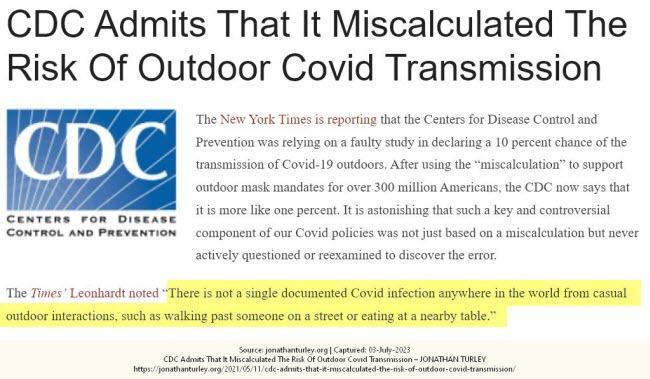


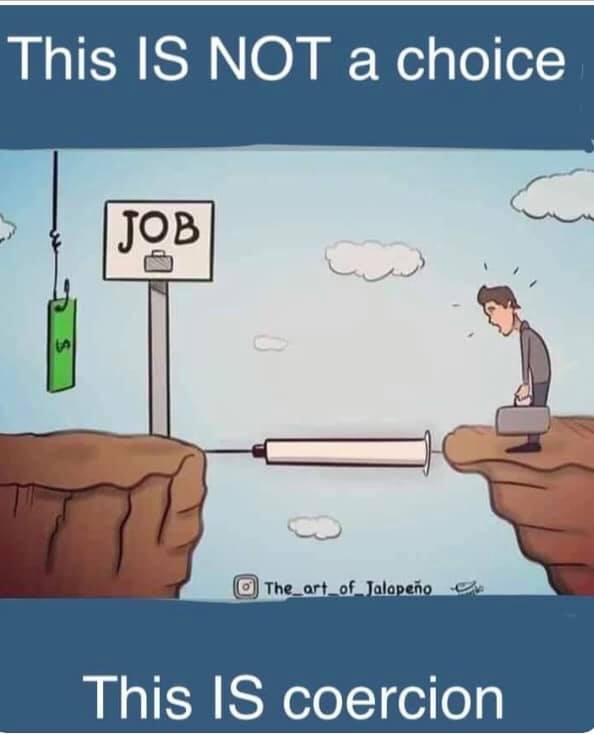


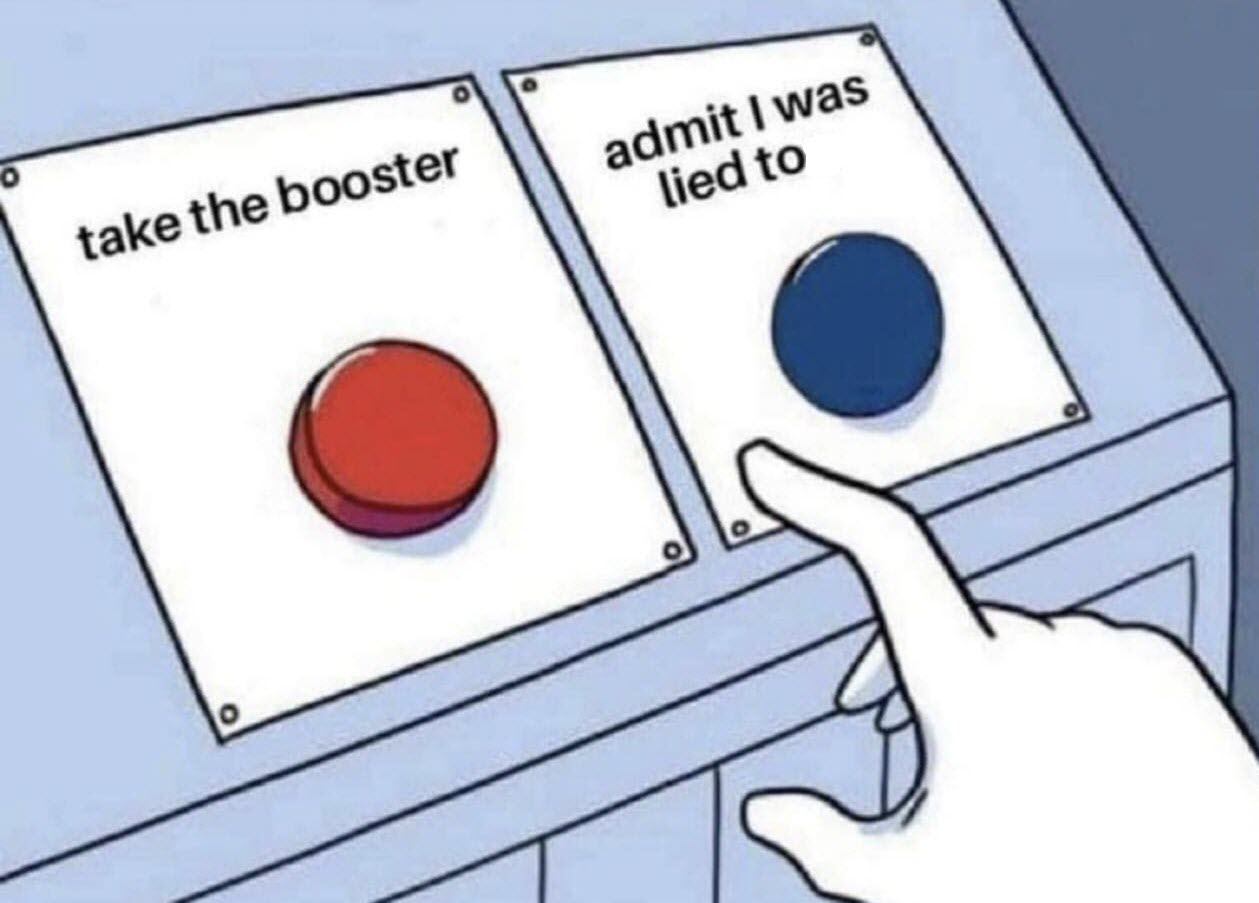


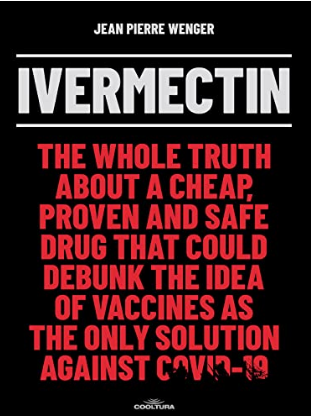

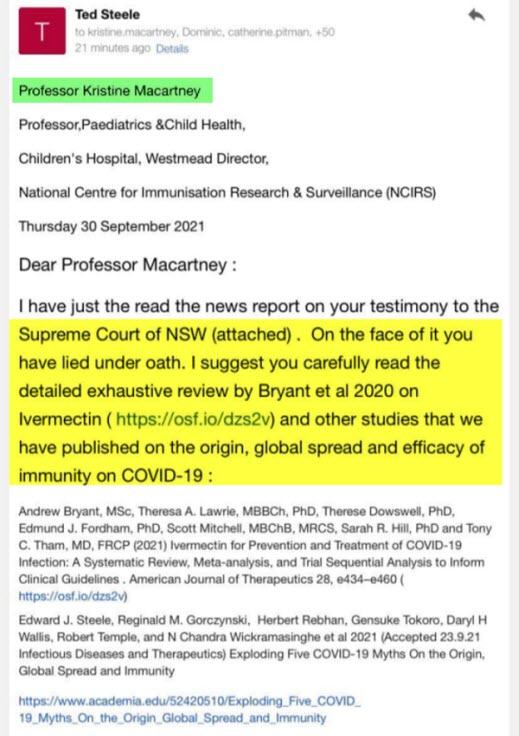
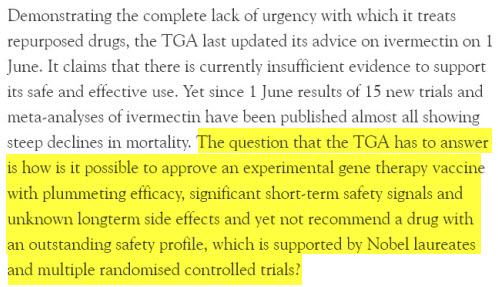
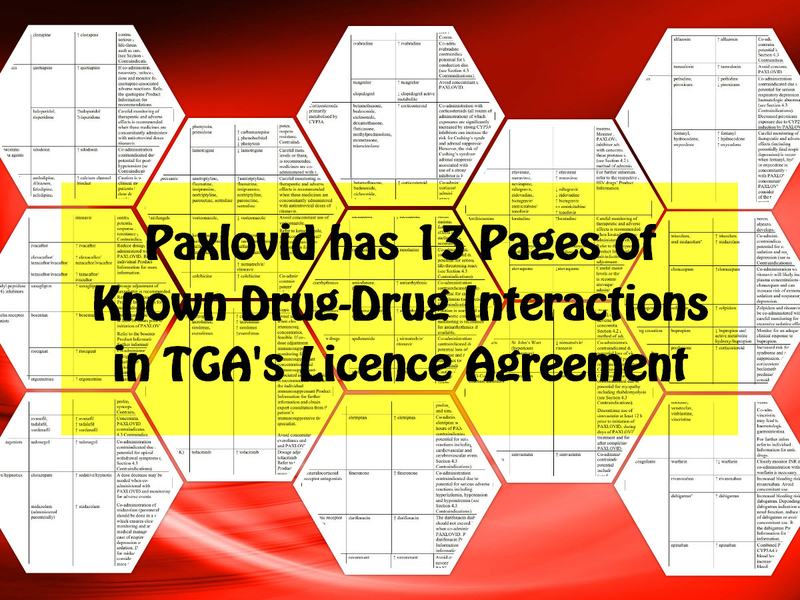





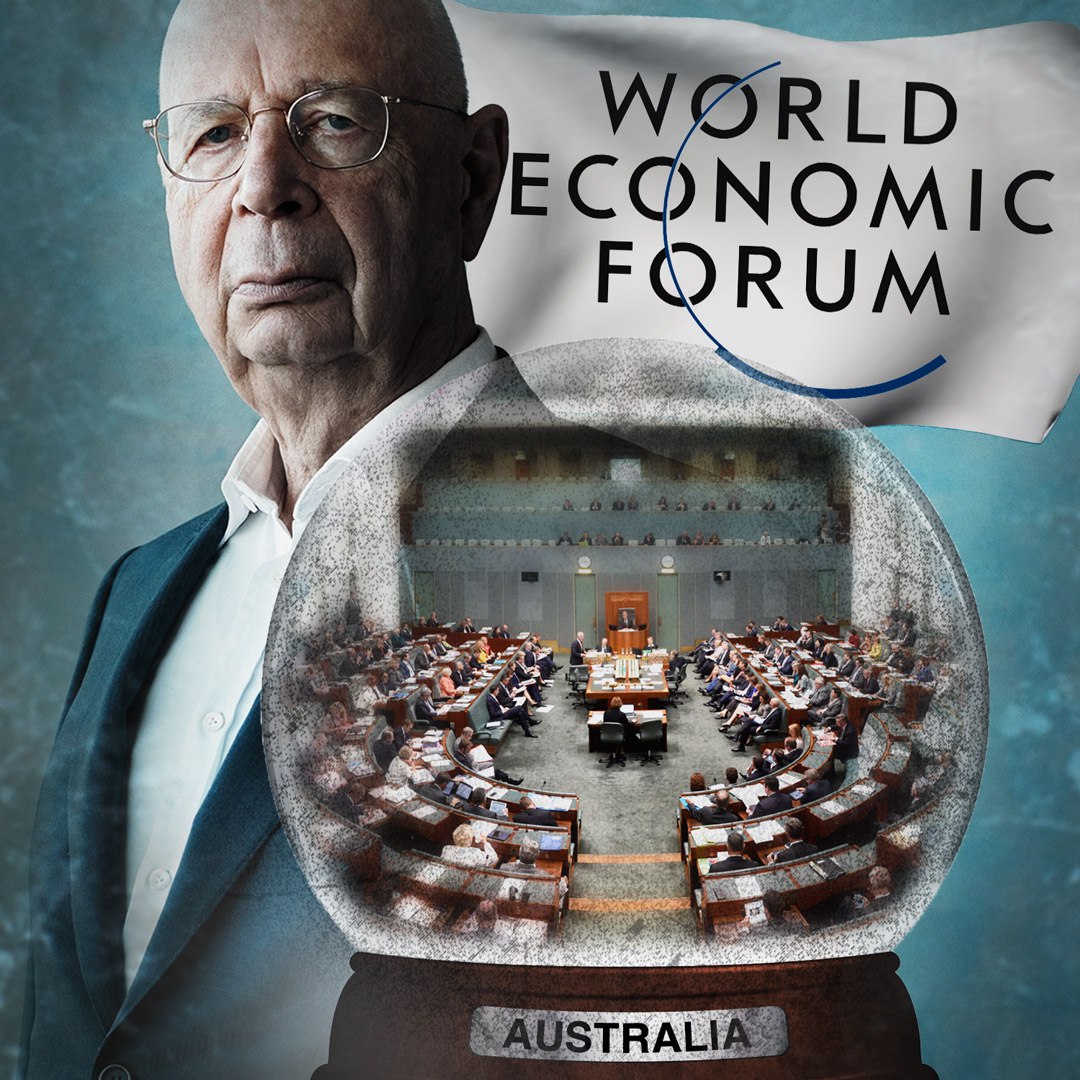

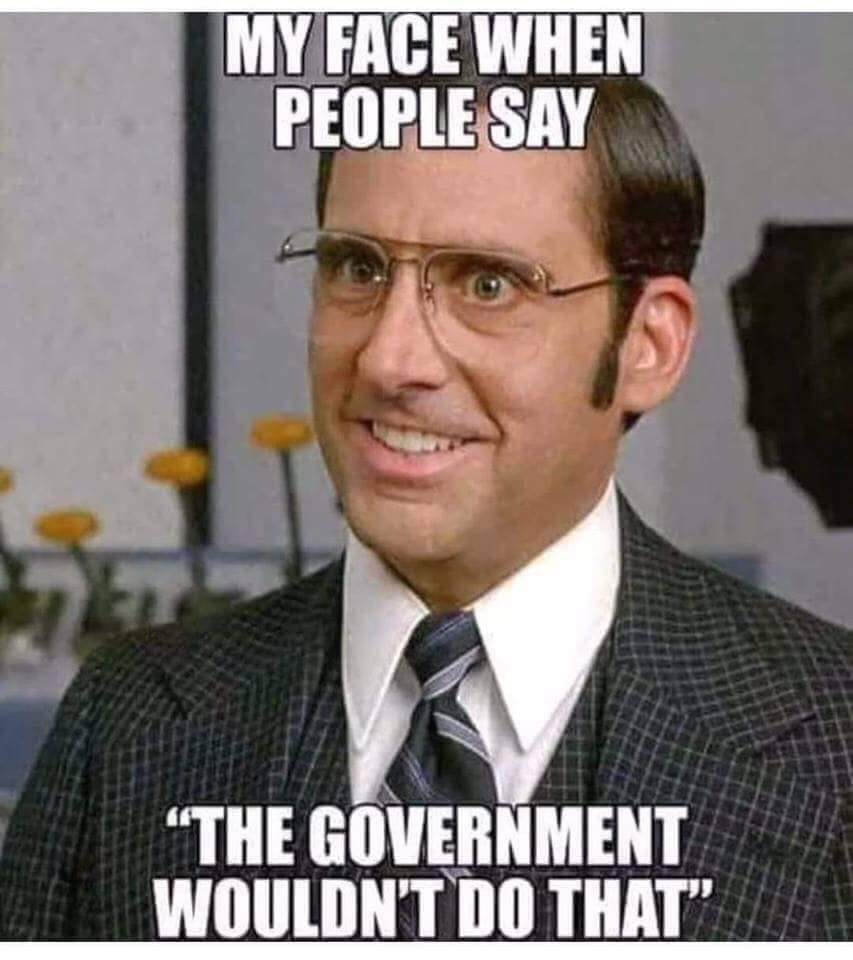
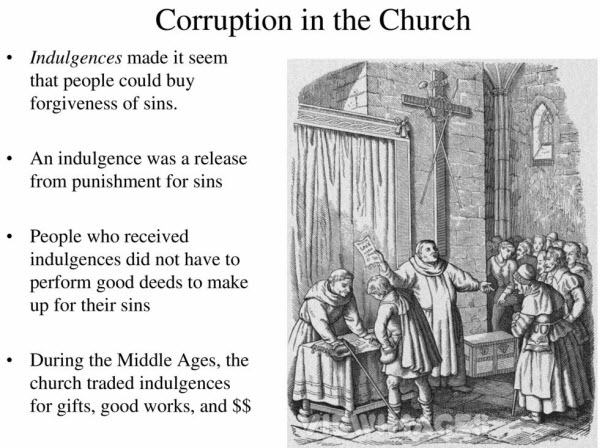

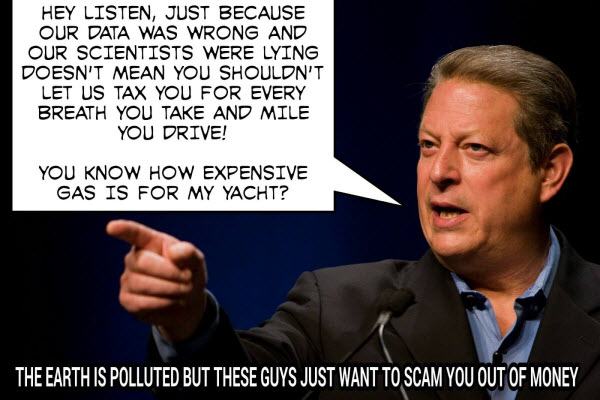
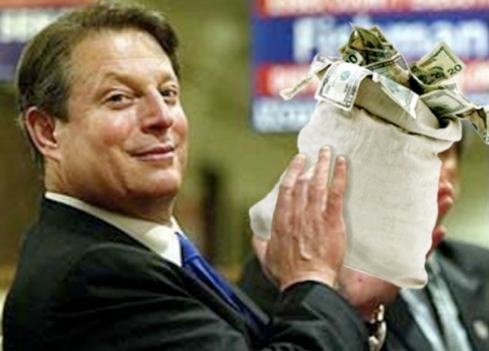
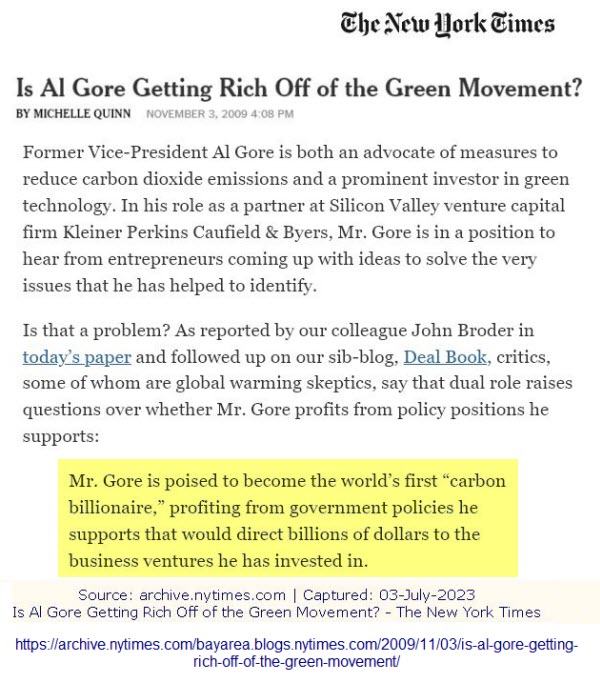
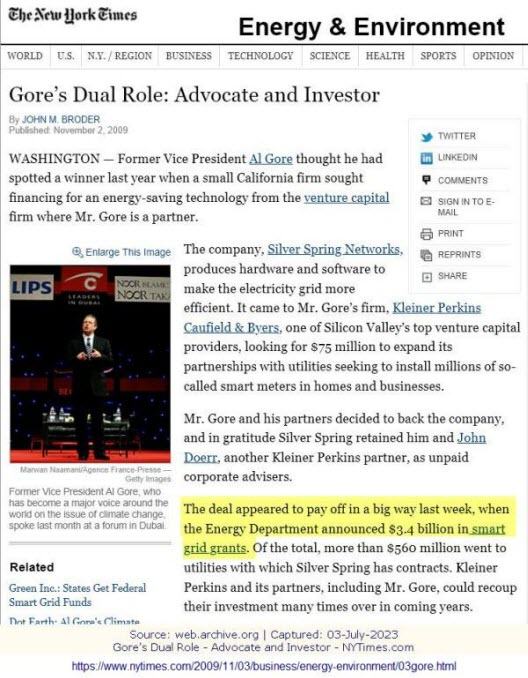
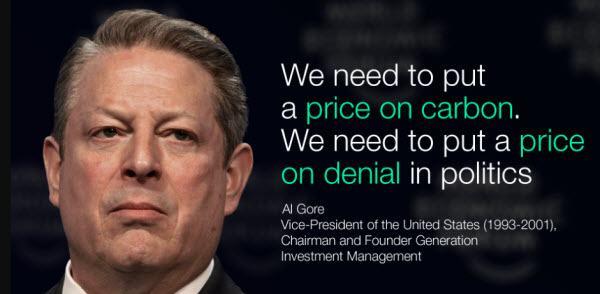
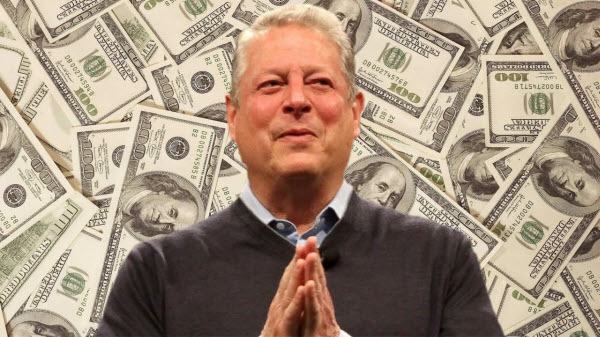




![[Police Standing up] Craig Backman – Former VIC Police](https://pennybutler.com/wp-content/uploads/2021/12/CraigBackman.jpg)
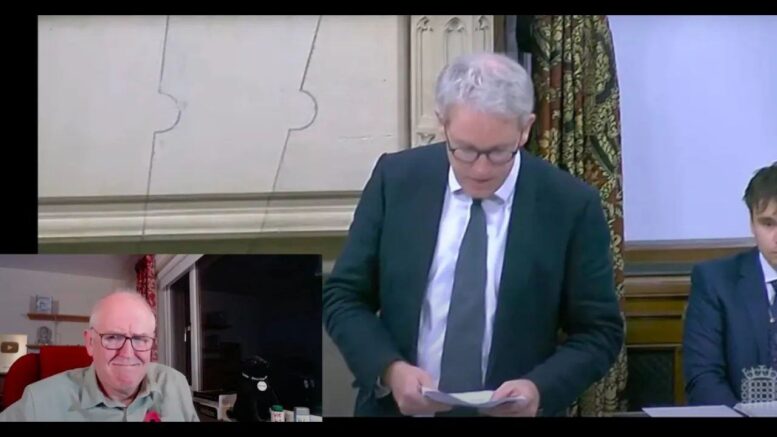
![[Police Standing Up] Chris Burson – Former VIC Police](https://pennybutler.com/wp-content/uploads/2022/05/ChrisBurson-Rebel-777x437.jpg)